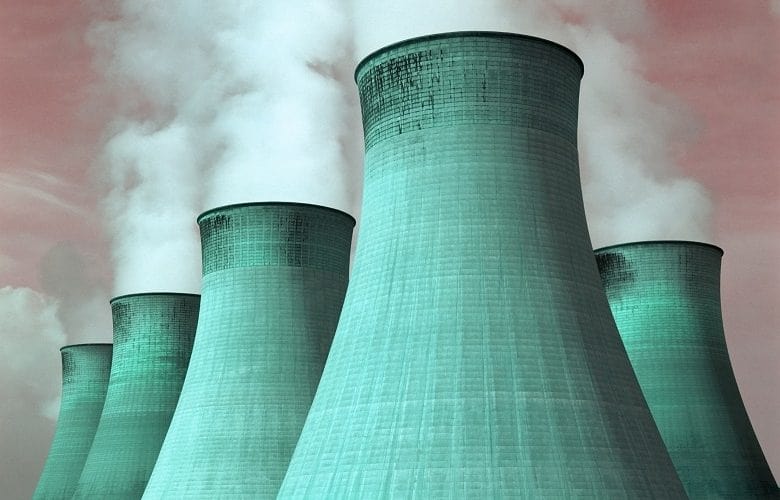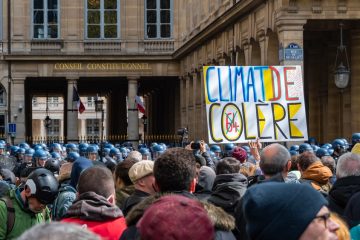Written By : Dr. Ananya Mukherjee
Department of Plant Science and innovation University of Nebraska-Lincoln, USA
Photo credit : Shutterstock.com
The world right now is nothing short of a science fiction movie gone wrong. As the world enters in May, we are all living in a nightmare. COVID -19 or the novel coronavirus pandemichas thus far claimed 234,765 lives and infected nearly 3.3 million people officially. Citizens of the world have been strictly instructed to practice social distancing by maintain a distance. Unsurprisingly, most workplacesother than those rendering essential services have shut down with everyone mostly working from home. Cities are under imposed lockdowns where large gatherings are banned and educational institutes have moved to an online model. This has caused the economy aroundthe world to take a downturn. We are in the throws of a recession where businesses are making less profits and people are losing their jobs. There is no vaccine or drug available for the coronavirus. Doctors, hospitals and health care workers are bungling under the pressure of increasing patients of coronavirus related complications. Scientists across the world are publishing more data on the virus and working on different strategies to generate a vaccine or find targeted drugs.
At the same time, this massive economic slowdown has resulted in markedly lower carbon emissions. In early April of this year an analysis by Carbon brief showed that emissions might fall by 5.5% from those of 2019. This may seem like a small number but we have been woefully behind in controlling emissions such that global temperatures have increased steadily for the past few years. Such a marked reduction did occur in 2008 as well during the last recession, when people again were travelling less. In 2008 there was a 3% drop in emissions which climbed back up once the economy recovered. The current5.5% drop has not been experienced before, during any economic crisis or war period. However as important as it is to curtail emissions, we need to drop them by 7.6% every year of this decade to reach our emission limit and affect global temperature change which is a further drop of 800metric tonsof carbon.
BBC also reported a drop in carbon monoxide levels in New York alone, most of which came from car exhausts, by 50%. Carbon dioxide levels also fell by 10% but climate change experts are not getting excited right now. Several climate scientists including the head of the UN Environment Programme (UNEP), Inger Andersen, has suggested that an economic slowdown is a quick fix but not a solution to lower global emissions effectively. As soon as we find easier ways of handling this crisis, we will have rising emissions. Once governments and corporations figure out a way to revive the economy, the climate will be back in crisis. On the other hand the UN also reported a huge increase in medical waste which needs to be tackled urgently. A sick planet grappling with diseases cannot be a healthy one by any means. Wuhan had to generate not only makeshift hospitals during the peak of this crisis but also create 46 new medical waste facilities. USA too needs to get on this increasing demand of such facilities because medical waste is not just being generated in hospitals anymore. There are people with minor symptoms isolated at home as well.
Carbon brief had also reported a reduction in 25% of emissions in China during the first four weeks of the lockdown. As the country is starting to open back up the reduction is still at an 18% lower than regular levels. Populated countries like India and China have even reported better air quality with markedly lower pollution levels amongst lockdowns. Paris and northern Italy ,that are densely populated,have also reported better and lower levels of emissions. However none of these reductions are due to any long-term structural changes and therein lies the problem.
Climate change has been studied for nearly 100 years now. The major cause of a warming planet is burning of fossil fuels leading to emissions of greenhouse gases. These gases especially carbon dioxide act as a blanket around earth and prevent heat from escaping. The resulting rise in temperature causes ice caps to melt and sealevels to rise. Weather becomes extreme with more hurricanes and tornadoes every year and food crops get affected by drought. The cause for concern arises because these gases don’t seem to escape on their own very fast and take upto40 years or so. Unfortunately greenhouse gas emission is clearly on the rise since the industrial revolution. Since 1998 the world has experienced 12 of the warmest years in history. Wildfires such as the very recent Australian bushfires, which destroyed the habitat of thousands of animals, become more and more frequent in a warm climate. Flooding too becomes worse and both food and water shortage starts plaguing entire populations. Population too has been on the rise and in 2050 we will be in a huge food deficit. Several institutes across the world are trying to come up with ways to tackle food demands in a warming climate. However we need to tackle the current level of emissions too. Without a drop in emissions by a level of 7.6% per year, we cannot control the global temperature limit. Added to that the politics of climate change is very murky. When the Kyoto protocol was passed in 1997 it aimed at demanding a decrease in greenhouse gas levels for the rich industrialized nations to pre 1990 levels by 2012. These nations however, could also trade emissions or offset them by taking part in mitigation projects in poorer nations mostly referred to as carbon trading. This is almost like planting trees in poorer nations without having to do much to bring down your own emissions, thus letting the richer countries get away with not doing much to begin with. The richer nations could then continue to make their profits whilst putting up a show of philanthropy. If the UN starts taxing the rich nations for their carbon emissions, some of this damage can possibly betaken care of.
Net carbon emission needs to reduce by using more renewable energy and cutting down on coal consumptions. The international panel of climate change (IPCC) has suggested that the global increase in temperature needs to be less than 1.5 °C. This is especially tough since that can only be achieved when global emission is “net zero”. Net zero emission is achieved when the amount of heat trapping gases released by fossil fuels are balanced by removing the same amount of gases. Of late due to the virus, several climate change meetings and workshops are being cancelled, thus creating more roadblocks in tackling the climate crisis efficiently. The reports and studies that show a marked reduction in emissions due to pandemic motivated lockdownsneed to be considered with a pinch of salt. Experts have reiterated the concerns raised by the UNDP and harped on implementing longterm solutions to protect the planet. It is definitely exciting and encouraging to see clearer skies and better air quality but it is not the end of the road yet.
Read More :
A brief summary of the spread of COVID-19
About the author :
Dr. Ananya Mukherjee
Department of Biological Sciences, Louisiana State University, Baton Rouge, LA 70803




